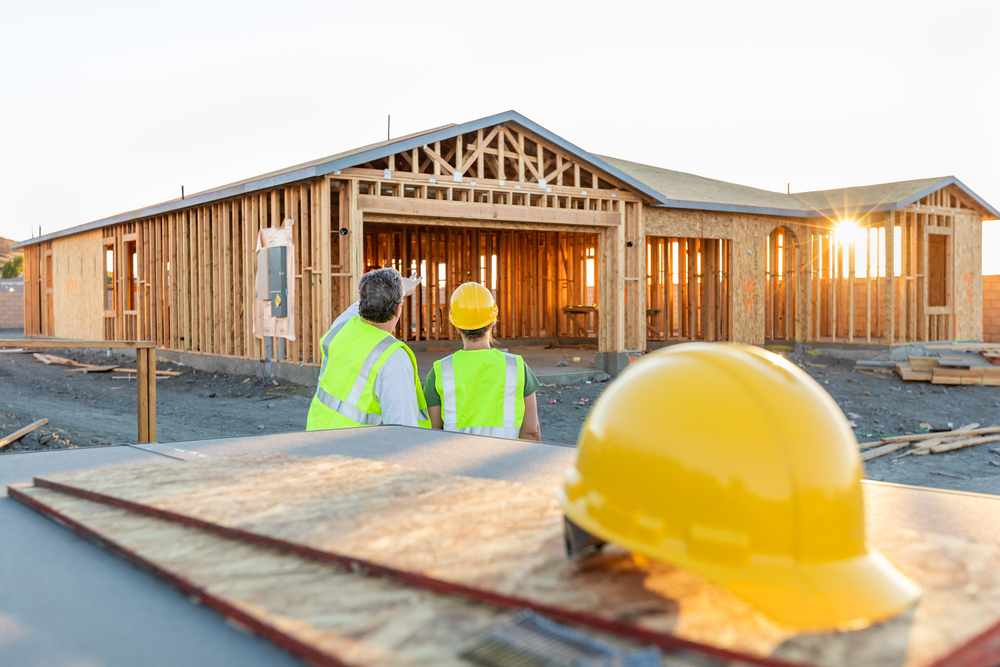If you buy a home, you get it as-is. You can ask the seller whether they’ll fix something before you buy it. They can do that, or they might refuse. If they say no, you can offer them less money.
If you want a home that’s built exactly how you want, though, you can knock down an existing structure and build over it. You can also buy land and start from scratch.
If you erect a house that you design, you get everything brand-new, which is nice. You might also get a builder warranty. Some people don’t know about builder warranties, so we’ll discuss them now.
What Are Builder Warranties?
Builder warranties will give you peace of mind. They’re warranties that cover either all-new homes or reconstructed ones.
The warranty covers items that are permanent parts of the house. The company building the house might offer it.
As the person buying the land and paying for the new construction, nothing says you must get the builder warranty. You probably want it, though. It lets you live in the new home, knowing that you can enjoy discounted or free repairs on several components if you need them.
Typically, home builder warranties last ten years, but you can get longer ones in some instances. You might get a fifteen-year or twenty-year one. Longer ones usually cost more, as you would expect.
What Does a Builder Warranty Cover?
If you look at a builder warranty, it probably contains language saying that it covers permanent house components. You must read the fine print, though. Each warranty has language stipulating what it covers and what it doesn’t.
Builder warranties generally cover materials and workmanship. If you find that workers built your home with shoddy or second-rate materials, they must come and replace or repair the problem if one arises during the warranty’s length.
For instance, the warranty probably covers the heating system and windows. If a window breaks, the builders can come back and replace it. The heating system is the HVAC system. That includes the furnace and also the central air conditioner if your home came with one.
If the ductwork malfunctions, the workers must come and fix it. The warranty should cover your various plumbing elements. If the pipes burst, the workers must come and fix that. They might also cover other plumbing elements, like a septic tank, if they installed one. Not all homes have them.
What Else Does the Warranty Cover?
The warranty likely covers all your electrical components as well. The company that built the home probably installed the plumbing and also all the electrical wiring. If anything malfunctions and you have that warranty, you should not call an electrician, provided the warranty hasn’t expired. You can call the company, and they will send someone right over.
What Do Builder Warranties Not Cover?
As for what a builder warranty likely does not cover, you would include something like your appliances. Presumably, you bought your appliances from a company like Maytag, Kitchen Aide, or Whirlpool. The appliances should come with warranties. You can also purchase extended warranties for them if you pay more.
The builder warranty will not cover those appliances when they break down. The builders can’t accept responsibility. They didn’t build the appliance, and they won’t help you with it if it malfunctions.
The warranty might also not cover small defects, like cracks and crevices. It covers large problems, but usually not small ones that appear as time passes. A house might settle, and you might notice a crack in some plaster. You can’t call the builders over something that tiny.
Any house component that’s under a service contract, the builder warranty should not cover. You must use the service contract for repairs if anything goes wrong with such a component.
What Might Void a Builder Warranty?
If you try repairing something that the builder warranty covers yourself, that almost always voids the warranty. These contracts vary, but if you look at yours, you’ll likely see that listed as a stipulation somewhere.
If something like the plumbing or HVAC system malfunctions, call the builder and mention the warranty. If you go into the ductwork with a screwdriver and start poking around, and the builders realize you did it when they stop by, they will doubtless say you voided the warranty through your interference.
Is One of These Warranties Worth It?
If you’re paying and expect a brand-new house when the job concludes, you probably want protection. Presumably, you also have money, or else you’d buy a house as-is. Generally, individuals who contact building companies and have them create houses from scratch have financial resources at hand that they can use.
If you have the money, you should strongly consider a builder warranty. It’s an additional financial outlay, but you will have that warranty in place, and you can use it if it becomes necessary. If you get a standard ten-year warranty, and you live in that house for at least a decade, you can use it if something goes wrong.
By five or seven years in, something will almost certainly malfunction that the warranty covers. You can also get a longer warranty. A 15-year one will likely come into play if you never use a 10-year one. After that much time elapses, you’ll likely encounter some issues, whether electricity-related, plumbing-related, or HVAC-related.
You can also sometimes transfer that warranty one time if you move while it’s still in place. If you have a ten-year warranty, and you move seven years in, the person or family who buys your home should like that feature. They have coverage for three more years, and that might convince them they should move forward with the home’s purchase.
Warranties are basically insurance. Remember that when the building company offers you this option. You can purchase it, put it in a file, and turn to it if you need it.

































